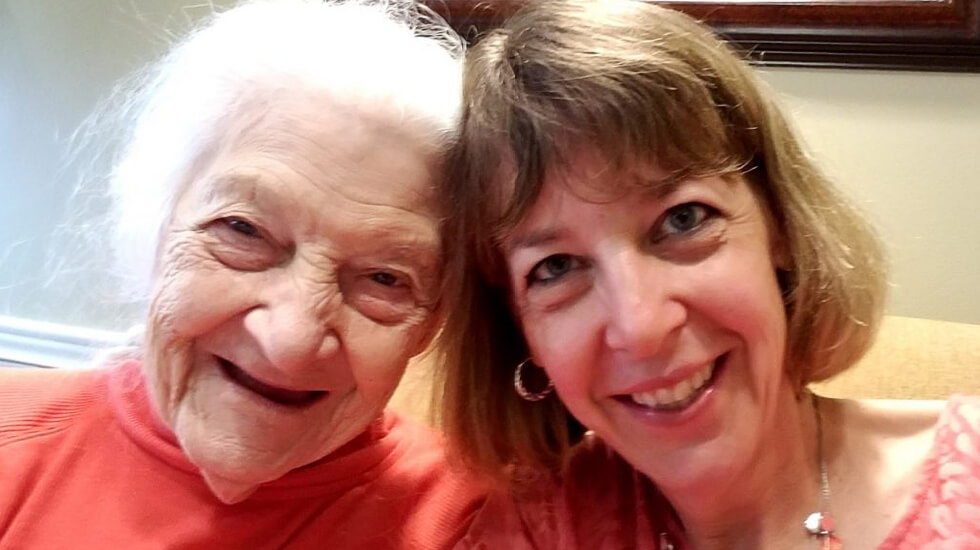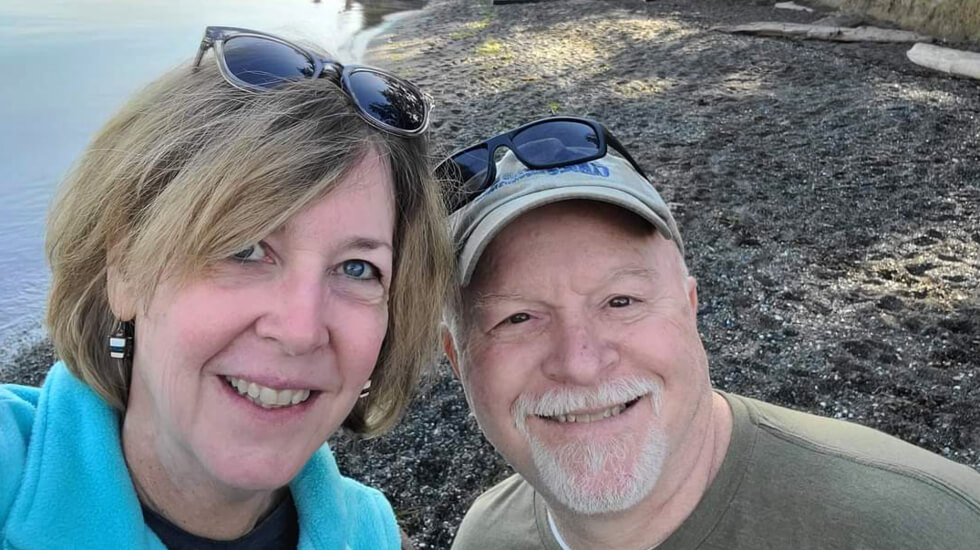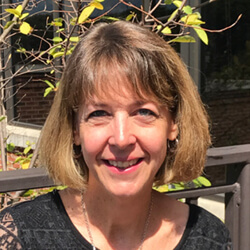A Career of Paying It Forward
Lisa Fournier, Doctor of Strategic Leadership, ‘12

Our Christian ethos requires us to not only do good for ourselves but also to do good for the world to “pay it forward.” It is this simple principle that Lisa Fournier has embodied throughout her professional career, channeling Galatians 6:9, where Paul reminds us, “And let us not grow weary of doing good, for in due season we will reap, if we do not give up.”
Leveraging Profit for Good
Early in her professional journey, Dr. Fournier saw the potential to do some good in the world and promote long-lasting, transformational change through the use of emerging-growth and community-based companies. As a young, self-motivated entrepreneur at the early age of 19, she dealt with her fair share of both success and failure, learning much along the way.
After working as a founder, innovator, and startup consultant in a wide range of industries, Dr. Fournier chose Regent University to advance her business and leadership education, earning her Doctor of Strategic Leadership (DSL) degree in 2012.
“My mom was diagnosed with Alzheimer’s in 2003 and moved in with us in 2009. My daughter was off at college, and I’d quit my job to become a caregiver,” she explained. It was, in part, her husband who encouraged her to pursue her education at Regent during that tumultuous time.

“I really enjoyed [my experience in] the [DSL] program, because I’ve always really enjoyed considering the bigger picture ideas. I learned how to better use theory because, having already been an implementer, I already knew how to get things done. It really broadened how I looked at organizations. I enjoyed the bonds I formed with people,” Dr. Fournier stated, going on to say, “Those connections and having the opportunity to think through things that I hadn’t before were really exciting to me. The program was really beneficial.”
For Dr. Fournier’s doctoral project, she published the book, The Barnabas Effect: Starting a Benefit Corporation to Renew Your Community. The Barnabas Effect leveraged her extensive experience in the entrepreneurial space to function as a roadmap for how entrepreneurs can work together to support their local communities and foster more sustainable, successful societies.
Unlike traditional for-profit organizations, benefit corporations are designed with the entire community in mind, possessing a dual responsibility to not only make a profit but also to “do good.” By earning more sales, they can use the proceeds to help tackle the pressing societal issues that governments, churches, and nonprofit organizations aren’t always able to solve on their own, from homelessness to environmental degradation.
But Dr. Fournier didn’t just talk the talk; she walked the walk and hit the ground running after earning her Regent diploma, owning and operating her own benefit corporation, the Norfolk Fair Trade Company (NFTC), located in downtown Norfolk from 2013 to 2017.
The NFTC aimed to support local business and social entrepreneurship in the Hampton Roads community. It functioned as both a store where the public could purchase high-quality specialty products from craftspeople and makers from a myriad of diverse backgrounds and a kind of learning lab that allowed entrepreneurs to gain valuable mentorship, leadership development, and customer service training. It helped strengthen downtown Norfolk and empower the city’s entrepreneurial mindset.
“I loved the entrepreneurial scene and always had. I opened NFTC because I wanted to put what I’d written about into practice. I wanted to see if it was really possible to move from a for-profit mentality to one prioritizing doing social good. I learned a lot. We served well over a thousand customers and helped underserved populations learn entrepreneurial skills,” Dr. Fournier stated.
Shining a Light on Alzheimer’s
After Dr. Fournier became her mother’s primary caregiver and moved her elderly parents in with her and her husband, her desire to do good was only further ignited. The experience of shifting from focusing on business to full-time caregiving changed her outlook on life and showed her the importance of relationship-building.
After her mom’s passing in 2017, Dr. Fournier was spurred to action and chose to pursue an M.S. in dementia and aging. Since 2020, she’s volunteered as a community educator for the Alzheimer’s Association, where she helps educate community audiences going through what she went through. She is also on the American Society on Aging’s Innovation & Social Impact Advisory Council.
“With Alzheimer’s, it’s such an unknown, and it can last a long time. It’s a type of anticipatory grief, and it’s hard. It’s a dreadful disease in our society. I really wanted to better understand it,” she stated.
Dr. Fournier worked on a Geriatrics Workforce Enhancement Program Grant (GWEP), helping to be part of the solution and develop dementia-friendly communities. She envisioned using advanced technologies like artificial intelligence to support those living with dementia and make caregivers’ lives easier.
While in the program, she set up a smart home initiative to help people live safer as they age. For her integrative AI solutions, she secured a $50,000 National Academy of Medicine Catalyst Award.
“I loved being able to give back and do that work,” Dr. Fournier recalled. “I’m a ‘pay it forward’ type of person. If I’ve experienced it, I believe very strongly in using that to help other people.”
In between her busy schedule of uncovering cutting-edge innovations and working on new research, she also found the time to write a book about her mom, which helped with her grief.
Creating Leaders in the Classroom
After gaining extensive hands-on experience in the world of entrepreneurship, Dr. Fournier has enjoyed shifting her focus to teaching others how to build businesses and bridges. She has provided entrepreneurship and business instruction to multiple universities and used her experience in the DSL program at Regent, as well as her practical experience running NFTC, to help undergraduate and graduate students realize their potential.

As an adjunct and assistant professor, Dr. Fournier has taught a variety of courses related to social entrepreneurship, the foundations of business, multicultural management, and leadership, just to name a few. Currently, her focus is on MBA coaching.
“I created a framework for students toggling between academia and implementation. I’m using my health and wellness training to help MBAs regain their balance once they start grad school so they can learn skills,” she explained. “I then help them uncover their vision and values. I’m also Gallups-strength certified, so I can help them understand who they are and tie that to their leadership development.”
She attributes her Regent training, along with her practical business experience, to what she’s been able to create for students.
“I’m able to use my entire Regent degree to help create resources, to understand leadership from an academic perspective as well as a practical one, and to be able to listen to my clients,” Dr. Fournier said.
As an entrepreneur, lecturer, advocate, and now MBA career coach, Dr. Fournier hopes to continue to use her experience and knowledge to empower others to transform their communities and become problem-solvers.
“It’s all about helping people get from A to B. I like coaching and helping get stuff off the ground. It’s all about paying it forward for me. Coaching has always been a common thread in my life,” she stated.
While going back to school, especially after a life-changing event, can be difficult, Dr. Fournier is full of words of encouragement.
“Even though most people go back to school because they find themselves in a transition, and even though we are such a goal-oriented society, it’s important to take the time to immerse yourself in the learning and grab hold of the beauty you’re in within the present moment and without worry. Stay diligent and remember that in the end, it’s worth it,” she said.
Dr. Fournier also advised on the importance of staying connected. To this day, she’s remained connected to her Regent cohort.
In her final words of wisdom, she stressed the importance of purpose, stating:
“It’s important to really understand your purpose in life. Ask yourself why people show up in your life. Are they showing up because they need advice or compassion? I ask myself, ‘What is it that I’m bringing to them?’ It’s important to live a purposeful life and pay it forward. I pull a lot from my faith.”


